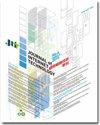A Fog Computing-based IoT Framework for Precision Agriculture
IF 1.2
4区 计算机科学
Q4 COMPUTER SCIENCE, INFORMATION SYSTEMS
引用次数: 42
Abstract
The challenge of analyzing and processing a huge amount of data is becoming increasingly important in this fourth industrial revolution era. In this scenario, Cloud Computing and Internet of Things (IoT) allow to build up an interconnected network of smart things. These two paradigms do not allow solving the Computing problems yet. Fog Computing aims at moving the processing abilities closer to the end users, avoiding an excessive exploitation of Cloud resources, further reducing computational loads. In this work, we propose a Fog-based IoT framework, which exploits the two-tier Fog and their resources, reducing the transmitted data to the Cloud, improving the computational load balancing and reducing the waiting times. The proposed Fog Computing approach is applied to the emerging area of precision agriculture, including all the techniques of agricultural land management. Furthermore, based on this framework, we have simulated and highlighted how the two-tier Fog Computing approach is able to reduce significantly the amount of transmitted data to the Cloud. We also propose and describe an application prototype, based on the previous framework, able to manage and monitor farmland, with a strong impact on both the business and environmental performance.基于雾计算的精准农业物联网框架
在第四次工业革命时代,分析和处理大量数据的挑战变得越来越重要。在这种情况下,云计算和物联网(IoT)可以建立一个互联的智能事物网络。这两种范式还不允许解决计算问题。雾计算旨在将处理能力向终端用户靠拢,避免过度利用云资源,进一步降低计算负载。在这项工作中,我们提出了一个基于雾的物联网框架,该框架利用双层雾及其资源,减少传输到云的数据,改善计算负载平衡,减少等待时间。所提出的雾计算方法应用于新兴的精准农业领域,包括农业土地管理的所有技术。此外,基于该框架,我们模拟并强调了双层雾计算方法如何能够显著减少传输到云的数据量。我们还提出并描述了一个基于先前框架的应用程序原型,该原型能够管理和监控农田,对业务和环境绩效都有很大影响。
本文章由计算机程序翻译,如有差异,请以英文原文为准。
求助全文
约1分钟内获得全文
求助全文
来源期刊

Journal of Internet Technology
COMPUTER SCIENCE, INFORMATION SYSTEMS-TELECOMMUNICATIONS
CiteScore
3.20
自引率
18.80%
发文量
112
审稿时长
13.8 months
期刊介绍:
The Journal of Internet Technology accepts original technical articles in all disciplines of Internet Technology & Applications. Manuscripts are submitted for review with the understanding that they have not been published elsewhere.
Topics of interest to JIT include but not limited to:
Broadband Networks
Electronic service systems (Internet, Intranet, Extranet, E-Commerce, E-Business)
Network Management
Network Operating System (NOS)
Intelligent systems engineering
Government or Staff Jobs Computerization
National Information Policy
Multimedia systems
Network Behavior Modeling
Wireless/Satellite Communication
Digital Library
Distance Learning
Internet/WWW Applications
Telecommunication Networks
Security in Networks and Systems
Cloud Computing
Internet of Things (IoT)
IPv6 related topics are especially welcome.
 求助内容:
求助内容: 应助结果提醒方式:
应助结果提醒方式:


